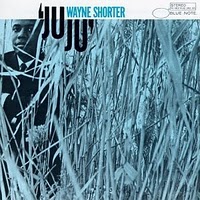 Modal jazz meets brilliant songwriting on this unbelievably strong effort from a young Wayne Shorter. Abstract at first, but completely catchy and whistleable after a listen or two, there’s just a sort of magic that happens when you combine this blend of otherworldly experimentation and clever, nearly pop blues-based hooks. Songs like “Deluge” and “Mahjong” play around with a theme just long enough to make you forget it, and then bring it back like a chorus. “Twelve More Bars To Go” is bright and airy blues in a familiar format, but the interplay and abstraction allow the soloists to wander away from the structure, to test the waters, and then return comfortably. Shorter’s tone is fantastic, his lines are lyrical, he along with the band creates a light and spacious mood that is bluesy, relaxed and on occasion serious, but is always engaging. The back-and-forth between he and McCoy Tyner is sublime, and the tempos are bouncy and spry without being pushy or demanding. Drummer Elvin Jones is at the top of his game, really showing some amazing soft-handed speed on the title track. All in all, a perfect post-bop record. –Cameron
Modal jazz meets brilliant songwriting on this unbelievably strong effort from a young Wayne Shorter. Abstract at first, but completely catchy and whistleable after a listen or two, there’s just a sort of magic that happens when you combine this blend of otherworldly experimentation and clever, nearly pop blues-based hooks. Songs like “Deluge” and “Mahjong” play around with a theme just long enough to make you forget it, and then bring it back like a chorus. “Twelve More Bars To Go” is bright and airy blues in a familiar format, but the interplay and abstraction allow the soloists to wander away from the structure, to test the waters, and then return comfortably. Shorter’s tone is fantastic, his lines are lyrical, he along with the band creates a light and spacious mood that is bluesy, relaxed and on occasion serious, but is always engaging. The back-and-forth between he and McCoy Tyner is sublime, and the tempos are bouncy and spry without being pushy or demanding. Drummer Elvin Jones is at the top of his game, really showing some amazing soft-handed speed on the title track. All in all, a perfect post-bop record. –Cameron
Jazz
Archie Shepp “Attica Blues” (1972)
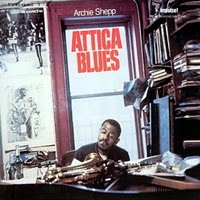 Thunderous, joyous, angry, sad beautiful and swinging. All of this in forty minutes of music from Shepp. This is a remarkable record that has so many flavors. The free jazz of his earlier work is replaced by gospel, blues and R&B. The opener is an all out assault that literally screams from the speakers. The fact that his can be followed by a ballad of such tenderness as Steam shows the genius of Shepp. Human rights form a common theme throughout and may explain some of the energy within. Shepp himself sounds so much more fulfilling in a bluesy role. –Jon
Thunderous, joyous, angry, sad beautiful and swinging. All of this in forty minutes of music from Shepp. This is a remarkable record that has so many flavors. The free jazz of his earlier work is replaced by gospel, blues and R&B. The opener is an all out assault that literally screams from the speakers. The fact that his can be followed by a ballad of such tenderness as Steam shows the genius of Shepp. Human rights form a common theme throughout and may explain some of the energy within. Shepp himself sounds so much more fulfilling in a bluesy role. –Jon
Seriously funky! The title track makes Sly Stone look like Kenny Rogers. The rest reminds me of Gil Scott-Heron occasionally straying into freaky Melvin Van Peebles territory. Expecting jazz, this album really blew my mind the first time I heard it. –David
Roy Ayers “He’s Coming” (1972)
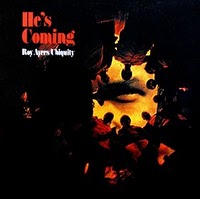 It takes about 20 seconds for you to realise that this is one heavy record. The opening keys and vocals on the reverential opener “He’s a Superstar” just kill it and the music doesn’t let up too much on the rest of the LP. So many great moments from Roy and Harry Whitaker here. I mean “We Live In Brooklyn Baby” is as good as it gets and “Sweet Tears” is one of those Roy Ayers jams designed to get you moving. In the 70’s this pairing had a formula down and worked it to the maximum without ever sounding tired or, amazingly for that matter, repetetive. One of the great songwriting partnerships in music. There are so many great Ubiquity LP’s from this period and you cannot go wrong with any of the classics as they all contain a killer track or two. I would say that this and the less heralded Virgo Red are the pick though. –Jon
It takes about 20 seconds for you to realise that this is one heavy record. The opening keys and vocals on the reverential opener “He’s a Superstar” just kill it and the music doesn’t let up too much on the rest of the LP. So many great moments from Roy and Harry Whitaker here. I mean “We Live In Brooklyn Baby” is as good as it gets and “Sweet Tears” is one of those Roy Ayers jams designed to get you moving. In the 70’s this pairing had a formula down and worked it to the maximum without ever sounding tired or, amazingly for that matter, repetetive. One of the great songwriting partnerships in music. There are so many great Ubiquity LP’s from this period and you cannot go wrong with any of the classics as they all contain a killer track or two. I would say that this and the less heralded Virgo Red are the pick though. –Jon
Donald Byrd “Places and Spaces” (1975)
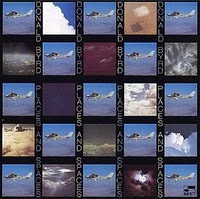 Donald Byrd made the transition from Bop trumpeter to jazz funk artist seemlessly and in the mid seventies he teamed up with the hottest producers in the genre, the Mizell brothers. This is the peak of their work together and is a jazz funk classic. Some traditional jazz critics never forgave Byrd for the switch accusing him of selling out. Nonsense and a narrow minded approach. Sure this is not jazz music but it doesn’t pretend to be either. It is simply fantastic jazz funk with the signature Mizell sound. As with all Mizell productions it is essentially their show and the sound is as familiar as ever. Characteristic vocal harmonies and well placed horn and string arrangements all feature heavily. What makes this Mizell LP stand out though is Byrd’s work on the trumpet. He had fully embraced this new genre by now and was the perfect player for this session. There are too many classics here to discuss but special mention must go to the opening two cuts “Dominoes” and “Change (makes You Want To Hustle).” –Jon
Donald Byrd made the transition from Bop trumpeter to jazz funk artist seemlessly and in the mid seventies he teamed up with the hottest producers in the genre, the Mizell brothers. This is the peak of their work together and is a jazz funk classic. Some traditional jazz critics never forgave Byrd for the switch accusing him of selling out. Nonsense and a narrow minded approach. Sure this is not jazz music but it doesn’t pretend to be either. It is simply fantastic jazz funk with the signature Mizell sound. As with all Mizell productions it is essentially their show and the sound is as familiar as ever. Characteristic vocal harmonies and well placed horn and string arrangements all feature heavily. What makes this Mizell LP stand out though is Byrd’s work on the trumpet. He had fully embraced this new genre by now and was the perfect player for this session. There are too many classics here to discuss but special mention must go to the opening two cuts “Dominoes” and “Change (makes You Want To Hustle).” –Jon
John Coltrane “A Love Supreme” (1965)
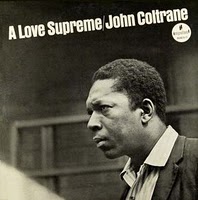 For the curious: This is the greatest jazz album ever recorded. For those in the know: This is not the greatest jazz album ever recorded. For Ornette Coleman, Eric Dolphy, Andrew Hill, Charlie Mingus, and Miles: You know I love you guys, but… the curious might be on to something… –Will
For the curious: This is the greatest jazz album ever recorded. For those in the know: This is not the greatest jazz album ever recorded. For Ornette Coleman, Eric Dolphy, Andrew Hill, Charlie Mingus, and Miles: You know I love you guys, but… the curious might be on to something… –Will
Terry Callier “What Color Is Love” (1973)
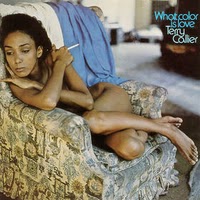 Quite simply one of the greatest records ever made. I cannot believe that it does not get greater attention. It really is the perfect marriage of soul and folk. Callier’s songs are at times joyous and at others surreal and almost sad. They are all delivered in one of the most gentle yet expressive voices there is. Another major part of this album is the production and arrangement of Charles Stepney who was the producer at Chess/Cadet records at the time. He has a wonderful sound that has influenced the likes of 4 Hero heavily in todays age. He is also heard producing the Rotary Connection classics from the same label. –Jon
Quite simply one of the greatest records ever made. I cannot believe that it does not get greater attention. It really is the perfect marriage of soul and folk. Callier’s songs are at times joyous and at others surreal and almost sad. They are all delivered in one of the most gentle yet expressive voices there is. Another major part of this album is the production and arrangement of Charles Stepney who was the producer at Chess/Cadet records at the time. He has a wonderful sound that has influenced the likes of 4 Hero heavily in todays age. He is also heard producing the Rotary Connection classics from the same label. –Jon


